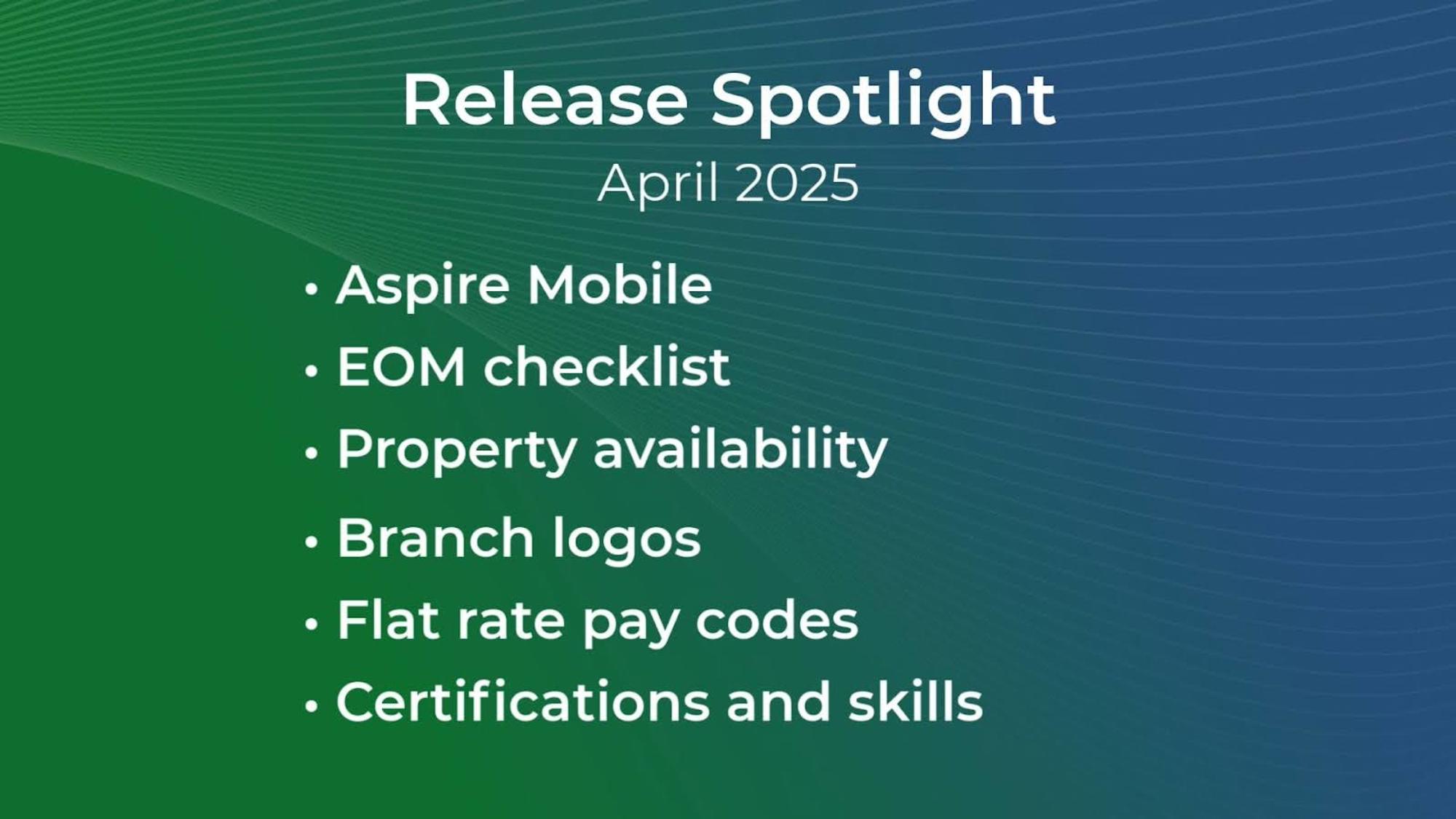Table of Contents
Table of Contents
- Do you need a license to start a landscaping business in Texas?
- What are the types of landscaping business licenses & permits in Texas?
- Step-by-step process to get a landscaping business license
- How much does a landscaping business license cost in Texas?
- What are the most common mistakes to avoid when getting a license?
- How Aspire helps landscaping businesses stay organized & compliant
- Over to you
Starting a landscaping business requires the correct licenses to ensure legal compliance, credibility, and protection from fines.
A business license helps landscaping professionals establish trust with homeowners and commercial clients while meeting state and local regulations.
This guide breaks down the licensing requirements, costs, and application steps. It simplifies the process for new business owners and landscaping contractors so they can launch their lawn care services legally and efficiently.
Do you need a license to start a landscaping business in Texas?
Starting a landscaping business in Texas requires the proper licenses and permits to operate legally and avoid fines. Texas has specific regulations for landscaping contractors, especially those offering pest control, irrigation systems, and tree care services.
A general business license is required for all landscaping professionals.
Specific permits depend on services like landscape irrigation, herbicide application, and tree trimming.
The Texas Commission on Environmental Quality (TCEQ) regulates licenses for irrigation systems and environmental compliance.
The Texas Department of Agriculture (TDA) oversees commercial pesticide applicator licenses.
The Texas Comptroller requires businesses that collect sales tax on landscaping services to register.
Failing to meet these requirements can result in penalties, back taxes, and even business shutdowns. Understanding state-specific licensing rules ensures compliance and smooth operations.
What are the types of landscaping business licenses & permits in Texas?
Texas requires multiple licenses and permits depending on the landscaping services a company offers. Missing any of these can lead to compliance issues and fines.
General Business License
Every landscaping business must obtain a general business license, issued by the Secretary of State or local government, which registers the company for tax purposes and enables it to operate legally.
General business licenses are required for all business structures, including sole proprietorships, LLCs, and corporations, and are necessary for obtaining business insurance, contracts, and other permits.
Failure to secure this license can result in penalties from the IRS and the Texas Comptroller.
Landscaping Contractor License
Texas does not require a general landscaping contractor license, but specific services do need permits, and additional certifications may be required if providing hardscaping, irrigation, or tree care.
Some Texas cities, like Houston, have stricter local licensing requirements for landscaping services, and projects exceeding a specific dollar amount may require construction or contractor permits.
Contractors working on municipal projects often need additional insurance and bonding.
Specialized Licenses
Some landscaping and lawn care services require additional licensing and permitting in Texas, including:
Commercial Pesticide Applicator License: Required for applying herbicides and pest control treatments and issued by the Texas Department of Agriculture (TDA).
Irrigator License: Requires installing and maintaining irrigation systems and is regulated by TCEQ.
Tree Trimming & Removal Permit: Some Texas cities require special approval for tree care services.
Landscape Architect License: Required for large-scale landscape design projects in Texas.
Permits & Local Regulations
Zoning permits ensure compliance with local regulations, depending on where landscaping contractors operate. It’s critical to research local regulations to check if a project requires:
Environmental permits for stormwater runoff or protected land.
Sales tax permits if your business charges tax for landscaping services.
Restricted use of lawn mowers and heavy equipment at certain hours if noise ordinances exist.
Step-by-step process to get a landscaping business license
Step 1: Choose your business structure
The primary business structure for landscaping businesses is a sole proprietorship, LLC, or corporation.
LLCs and corporations offer liability protection.
Sole proprietors may need to file a DBA (Doing Business As) name.
Choosing the right structure for your business is essential to minimize taxes and protect assets.
Step 2: Register your business name
Start by checking the name availability through the Texas Secretary of State’s database.
File a DBA (Assumed Name Certificate) if using a different name than your legal entity.
Register the business name with the Texas Comptroller if collecting sales tax.
Always review the local county or city name registration rules to ensure compliance at every level, from the municipality to the state.
Step 3: Obtain an EIN (Employer Identification Number)
The IRS requires Employer Identification Numbers for tax purposes and hiring employees.
Business owners can apply online for free via the IRS website, but the EIN is needed to open a business bank account, file taxes, and process payroll for employees.
Step 4: Meet state-specific licensing requirements
Each state has different regulations for landscaping business licenses. In addition to getting an EIN, be sure to:
Check with TCEQ, the Texas Department of Agriculture, and local city offices.
Ensure compliance with pesticide, irrigation, and environmental laws.
Some cities may require additional contractor permits.
While it can be a hassle to check requirements at every level of government, obtaining the correct licenses and permits prevents delays and issues once you’re up and running.
Step 5: Apply for necessary permits & certifications
Depending on your scope of services, you’ll need to apply for:
TCEQ Irrigator License for irrigation system installations.
Texas Department of Agriculture Commercial Pesticide License.
Tree trimming or landscaping permits are required in certain cities.
Step 6: Get business insurance & bonds
General liability insurance is required for most landscaping businesses. But if you’re hiring team members or going after government landscaping contracts, you may also need:
Workers’ compensation insurance
Surety bonds
Step 7: Pay fees & submit your application
Business license costs vary but range from $50 to $500, while specialized permits may cost more, depending on the service.
Submit applications online through TDA, TCEQ, or local offices.
Step 8: Renew & maintain compliance
Most licenses require annual or biennial renewal, and pesticide and irrigation licenses may require continuing education.
Be sure to update business insurance and sales tax permits as needed.
How much does a landscaping business license cost in Texas?
Starting a landscaping business involves several costs for entrepreneurs and small business owners beyond just equipment and labor. Costs vary by state, business structure, and services offered, with some states requiring multiple licenses.
A business license, specialized permits, and insurance coverage add to the business entity expenses. For example, a landscape contractor license may cost more than a basic lawn care business license.
Permits for pesticide application, irrigation systems, and tree trimming come with additional fees.
Insurance, such as general liability insurance and workers’ compensation insurance, is often mandatory.
Understanding these expenses helps landscaping professionals budget effectively and avoid unexpected costs.
Here’s a breakdown of the typical expenses of getting a landscaping business license.
Typical costs for a landscaping business license
1. General Business License Fees
Cost: $50–$500, depending on the state and business location.
Required for all small businesses, including lawn care services and landscape contractors.
Fees vary based on business structure (LLC, corporation, or sole proprietorship).
Renewals may be annual or biennial, with additional costs.
Check with the Secretary of State’s office for exact pricing.
2. Contractor & Specialized License Fees
States requiring a landscaping contractor license charge $150–$700.
Depending on training requirements, a commercial pesticide applicator license costs $75–$200.
An irrigator license for installing irrigation systems costs $100–$500.
Some states require years of experience or passing an exam, which adds exam fees.
Fees may increase for landscape architects or tree care specialists.
3. Permit & Local Regulation Costs
Zoning permits: $50–$300 for compliance with local laws.
Environmental permits: Required for landscape maintenance in protected areas.
Sales tax permits: Some states require landscaping businesses to collect and remit sales tax.
City business permits: Additional local fees may apply.
Check with county offices for specific permit requirements.
4. Business Insurance & Bonding Costs
General liability insurance covers accidents and damages, and costs $400–$1,500 per year.
Workers’ compensation insurance: Required in most states for businesses with employees.
Surety bonds: $100–$500, often required for government landscaping contracts.
Insurance rates depend on the size of the business and risk factors.
Many states require proof of coverage before issuing a business license.
Avoiding licensing mistakes helps ensure a smooth approval process and prevents unnecessary delays for your landscaping business.
What are the most common mistakes to avoid when getting a license?
Obtaining a landscaping business license involves several steps, and skipping any one can lead to:
Delays
Fines
Business shutdowns
Many business owners assume licensing rules are the same across states, but landscaping services often require different permits and certifications depending on location.
Missing insurance or bonding requirements can prevent approval or leave the business vulnerable to legal issues, and a failure to renew on time can result in suspended licenses, penalties, or extra application fees.
Landscape professionals can avoid these common business mistakes and ensure smooth licensing and long-term business compliance.
1. Skipping state-specific requirements
Each state has different licensing requirements for:
Landscaping contractors
Irrigation systems
Pest control
Some states require years of experience or a training course before granting a contractor license.
Commercial pesticide applicator licenses and irrigator licenses are often regulated at the state level, and there may be strict rules for using herbicides and fertilizers, such as in:
Texas (TCEQ)
California
Florida
Always check with the state licensing board to avoid legal penalties or unexpected delays.
2. Not getting the right insurance or bonding
General liability insurance protects against:
Property damage
Accidents
Legal claims
Many states require workers’ compensation insurance when hiring employees, and some cities or states demand a surety bond to guarantee the completion of contracted work.
A lack of proper coverage can delay license approval or lead to financial liabilities, so always verify business insurance requirements before submitting a landscaping business license application.
3. Failing to renew on time
Most landscaping licenses, permits, and certifications require renewal every 1–2 years. Missing a renewal deadline can result in:
Fines
Penalties
Revoked business licenses
Some states require continuing education courses to maintain landscape contractor or pesticide licenses.
Failing to update insurance or bonding may also cause license suspension.
Set renewal reminders and check state and local regulations to stay compliant.
With the right tools, landscaping businesses can stay organized, manage compliance, and streamline operations effortlessly.
How Aspire helps landscaping businesses stay organized & compliant
Aspire’s landscape business software simplifies contract management, invoicing, compliance tracking, and job scheduling.
Contract & Proposal Management
Store and manage service agreements to ensure legal compliance.
Ensure all contracts align with Texas state regulations.
Invoicing & Payment Processing
Automate billing for lawn care services, landscape maintenance, and irrigation systems.
Ensure financial records align with Texas Comptroller tax laws.
Pesticide & Irrigation Compliance Tracking
Maintain digital records of employee certifications.
Ensure compliance with TCEQ and the Texas Department of Agriculture.
Business Reporting & Documentation
Track expenses, revenue, and tax filings.
Organize documents for workers’ compensation and liability insurance.
Scheduling & Job Management
Assign jobs based on licensing requirements.
Prevent scheduling conflicts that violate local zoning laws.
Over to you
A Texas landscaping business license ensures legal compliance, credibility, and long-term success.
Aspire helps landscaping professionals manage contracts, invoicing, compliance, and job scheduling effortlessly.
Book a free demo to see how Aspire streamlines your Texas landscaping business operations.
Disclaimer: This article is for informational purposes only and should not be considered legal or financial advice. While every care was taken using official sources, you should always verify requirements with Texas government websites.








